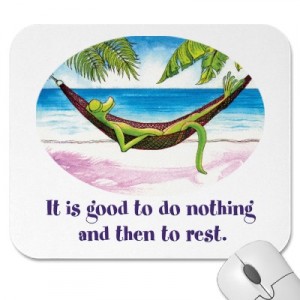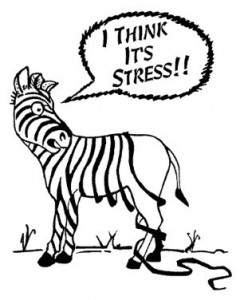 I have a t-shirt that I bought in one of the islands in the Caribbean that says, “It is good to do nothing and then to rest”. Just as it is important for us to have good time management skills and to work hard, it is also just as necessary to practice calming our mind and being still. For many it is very hard just to be still, to not be doing anything, to just relax. Relaxation is about being still physically while being alert mentally. Knowing how to ‘relax’ is one way of allowing your body and mind to rest, a very deep rest, which in turn allows you to build the energy you need for the rest of your activities.
I have a t-shirt that I bought in one of the islands in the Caribbean that says, “It is good to do nothing and then to rest”. Just as it is important for us to have good time management skills and to work hard, it is also just as necessary to practice calming our mind and being still. For many it is very hard just to be still, to not be doing anything, to just relax. Relaxation is about being still physically while being alert mentally. Knowing how to ‘relax’ is one way of allowing your body and mind to rest, a very deep rest, which in turn allows you to build the energy you need for the rest of your activities.
Imagine I ask you to hold yourself up on a chin up bar and hold it as tight and long as you possibly can. In a very short period of time you start to get tired and it becomes more difficult. Soon your muscles are aching and there seems to be no power in your hands or arm to continue to hold. Finally it becomes impossible – you let go and you feel great relief. If we did the same experiment and I asked you to hold yourself up on a chin up bar for 10 seconds and then you got a short break and then held yourself for 10 seconds with a break – you would be able to continue that routine for a much longer time, and the reason is you allowed yourself to relax your muscles.
If we never take the time to calm our mind and body, fatigue can set in quickly and everyday activities will seem harder for us and soon we simply do not have the energy to do even the simple things. This kind of relaxing is not the same as watching TV, napping, chatting online or even taking a walk. It can be accomplished in these ways though. Continue reading “How to Reduce Stress Part 3: Learning to Relax”







